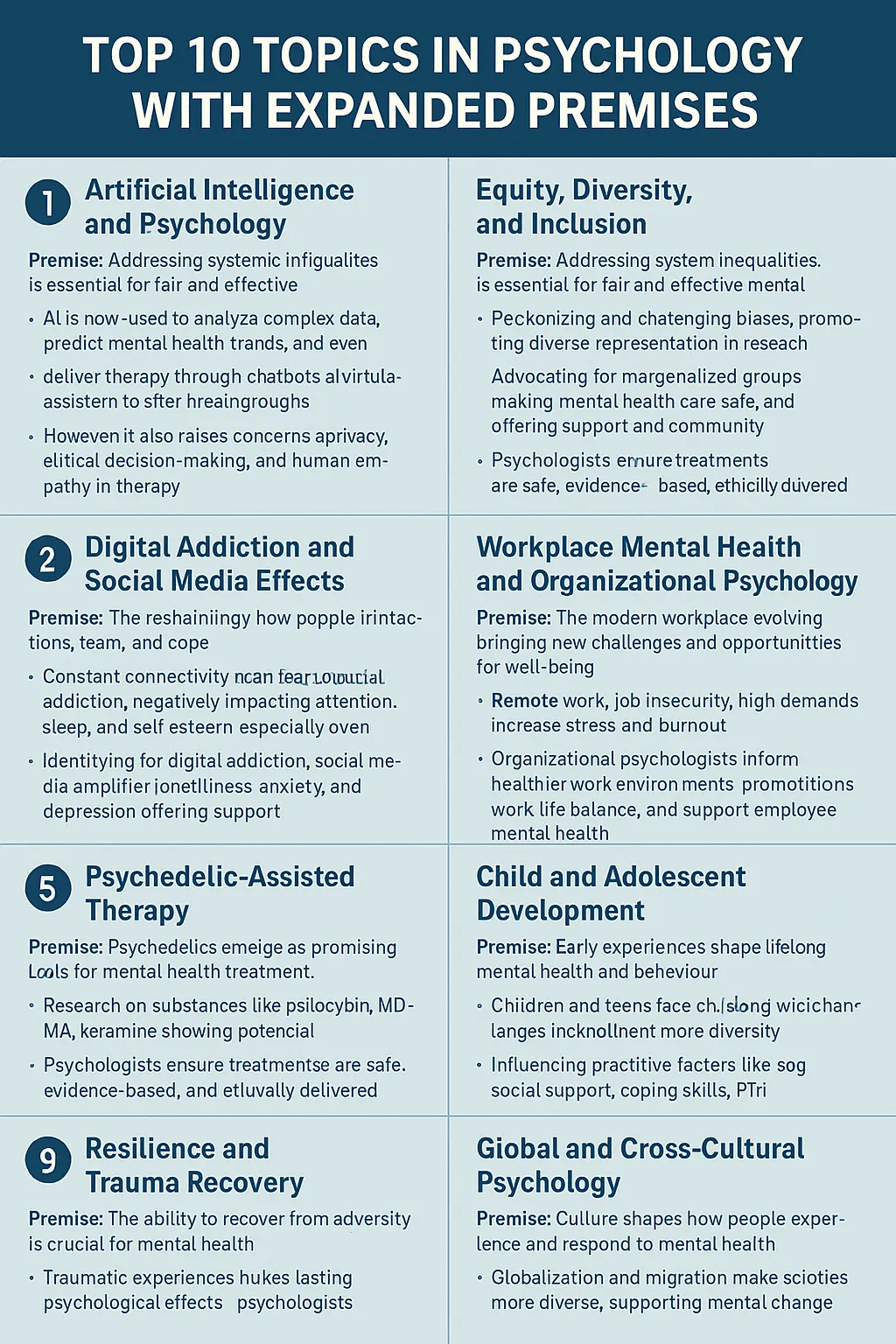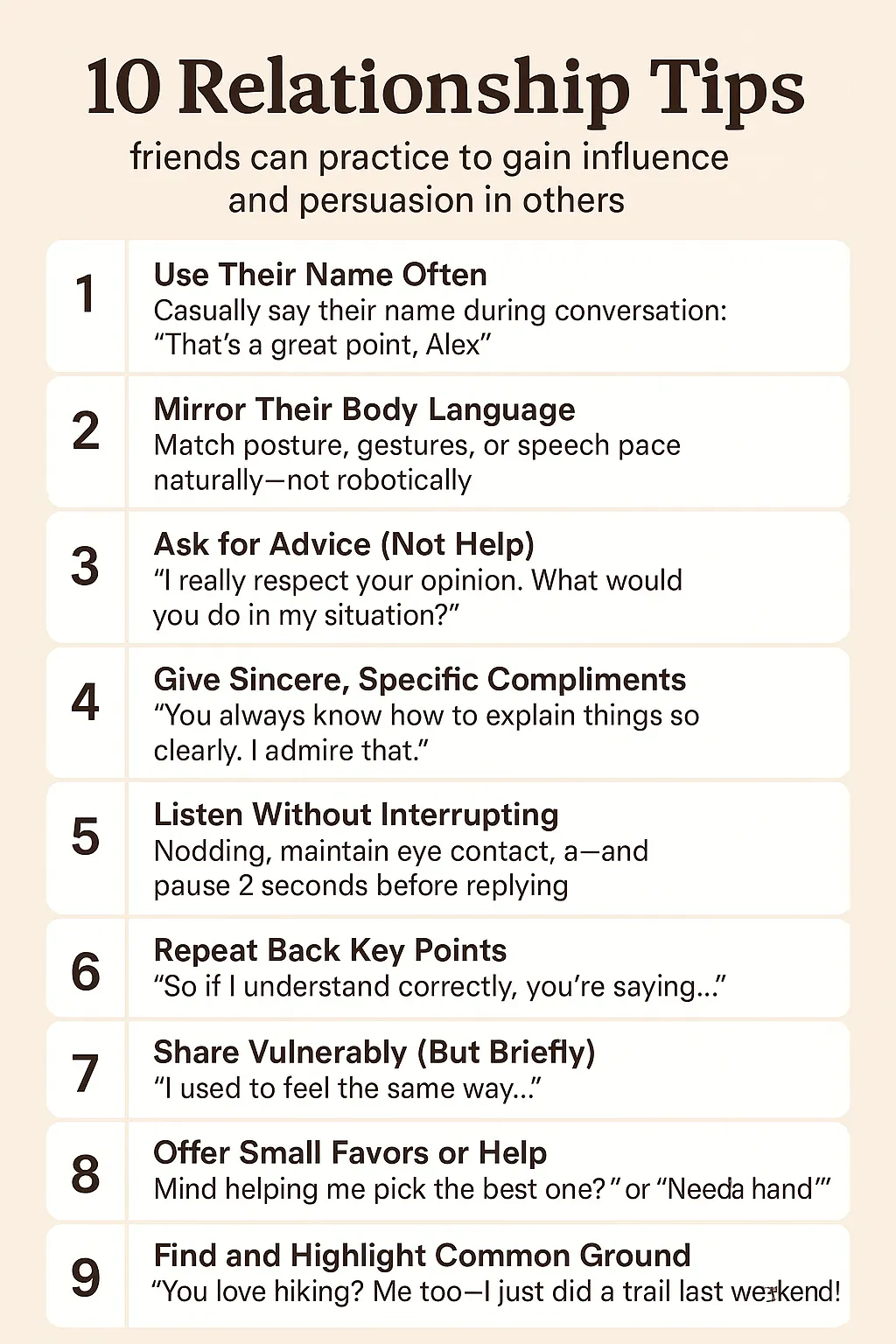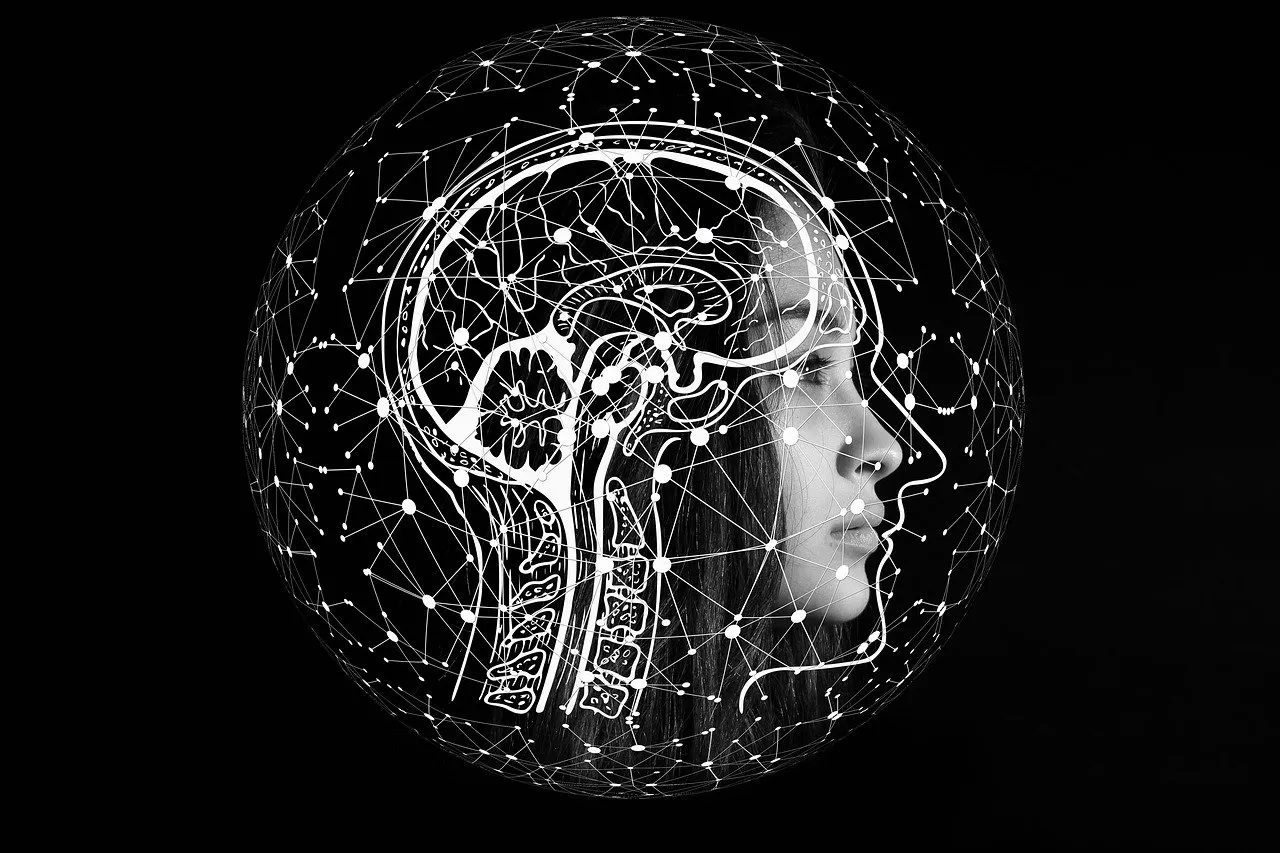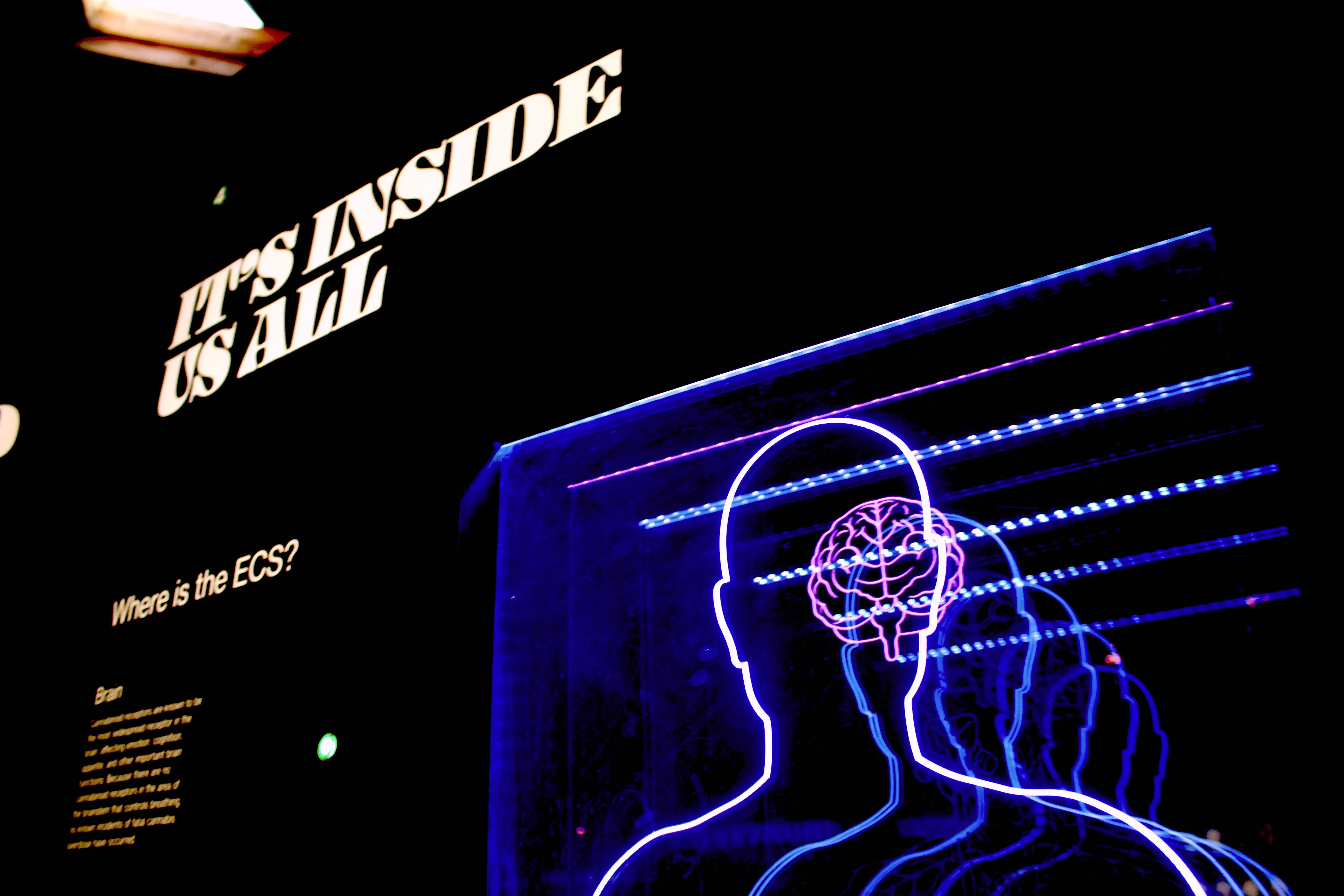Cyberpsychology & Online Behavior: Navigating the Digital Mind

In an age where our screens are gateways to connection, entertainment, learning, and self-expression, our digital lives are becoming just as important as our physical ones. As the line between the virtual and real continues to blur, a fascinating and rapidly growing field has emerged to understand this intersection: Cyberpsychology.
At its core, cyberpsychology is the study of how digital technology, especially the internet, influences human behavior, thoughts, and emotions. It explores everything from how we form identities online to the darker corners of the digital world, such as cyberbullying and internet addiction. Today, with billions of people living part of their lives online, cyberpsychology is more relevant—and necessary—than ever.
The Rise of Digital Identity
Who are we when we're online? Are we the same person on Instagram that we are on LinkedIn or in real life?
One of the foundational questions in cyberpsychology concerns digital identity—how people present themselves in the virtual world. In many cases, individuals construct idealized versions of themselves online. This can be empowering: people can explore parts of their identity in safe spaces or gain confidence through curated self-presentation.
However, this digital persona can also lead to identity dissonance, anxiety, and a loss of authenticity. The pressure to present a perfect life online can impact mental health, especially among younger users. Likes, followers, and retweets become social currency, shaping how people feel about themselves and others.
Cyberpsychologists study these dynamics closely. They analyze how digital environments affect self-esteem, identity development, and the formation of communities. Social media, for example, can foster belonging—but also exclusion. Understanding the psychological impact of these interactions is key to designing healthier platforms and encouraging more mindful online behaviors.
Ready to Experience a Life-Changing Breakthrough? Unlock the “Journey of the Soul” Brainwave Entrainment Series Now and Activate the Hidden Power Within You! Start Your Transformation Today—Click Here to Begin Your Journey!
Cyberbullying: A Dark Reflection of Human Behavior
With the rise of social media and online communication, bullying has transcended the schoolyard and entered the digital sphere. Cyberbullying refers to harassment, intimidation, or humiliation that occurs via electronic communication. Its effects can be devastating.
Unlike traditional bullying, cyberbullying can be relentless and inescapable. It follows victims into their homes and can be witnessed by countless others, intensifying its impact. Victims often suffer from anxiety, depression, and, in severe cases, suicidal ideation.
Cyberpsychologists investigate the motivations behind such behavior. Why do people engage in cruelty behind screens? The answer often lies in online disinhibition—the phenomenon where people say or do things online that they wouldn’t in person, largely because of perceived anonymity, lack of authority, and emotional detachment.
By understanding the psychological drivers of online aggression, cyberpsychologists work toward better interventions, such as AI-based moderation tools, educational programs, and digital empathy training. Courses in cyberpsychology now teach aspiring professionals how to recognize, address, and mitigate online harm through both technological and therapeutic approaches.
The Algorithmic Mirror: How Platforms Shape Behavior
Cyberpsychology also delves into the symbiotic relationship between humans and algorithms. When you scroll through TikTok, binge on Netflix, or shop on Amazon, you're engaging with algorithms that learn your preferences and nudge your behaviors.
This creates what some researchers call the "algorithmic self"—a version of you shaped and molded by data and predictive technologies. While this can enhance user experience, it also raises ethical questions. Are we becoming too predictable? Are our choices truly ours?
Cyberpsychologists are beginning to explore how algorithms influence our decision-making, attention spans, and even political opinions. In a world of echo chambers and misinformation, this research is vital.
Online Communities & Belonging
Despite the challenges of the digital world, it's not all doom and gloom. One of the most positive aspects of life online is the formation of online communities. Whether it's support groups for mental health, forums for niche hobbies, or fandoms celebrating shared interests, the internet has become a powerful tool for connection.
Cyberpsychology explores how these communities function, how people find identity and belonging through them, and how they impact mental well-being. During times of crisis, such as the COVID-19 pandemic, online spaces often served as lifelines for isolated individuals.
However, not all communities are benign. Radicalization, toxic groupthink, and the spread of extremist ideologies also occur in digital echo chambers. Cyberpsychologists study these phenomena to understand how they take root and how they can be countered.
Ready to Experience a Life-Changing Breakthrough? Unlock the “Journey of the Soul” Brainwave Entrainment Series Now and Activate the Hidden Power Within You! Start Your Transformation Today—Click Here to Begin Your Journey!
The Future of Cyberpsychology
The demand for cyberpsychologists is growing. Universities now offer specialized courses in the field, and job opportunities range from mental health practitioners trained in online counseling to tech ethicists and UX designers focused on user well-being.
Emerging areas like the metaverse, VR therapy, and AI companionship are opening new frontiers for psychological research. How do virtual environments impact our brains and behaviors? What are the long-term effects of living in augmented realities?
Cyberpsychologists are at the forefront of answering these questions, bridging the gap between human nature and technology. As we continue to live more of our lives online, the insights from this field will be crucial for shaping a healthier digital future.
Final Thoughts
Cyberpsychology isn’t just about technology—it’s about people. It helps us understand how we interact, adapt, and sometimes struggle in a world where our digital and physical realities intertwine.
As we navigate this new terrain, one thing is clear: our digital behaviors matter. They shape how we see ourselves, how we connect with others, and how we make decisions. Whether it's through supporting victims of cyberbullying, building inclusive online spaces, or creating more ethical platforms, cyberpsychology provides the tools to humanize our technology-driven lives.
In the end, the future of psychology is not just in the mind—it's also in the cloud.













